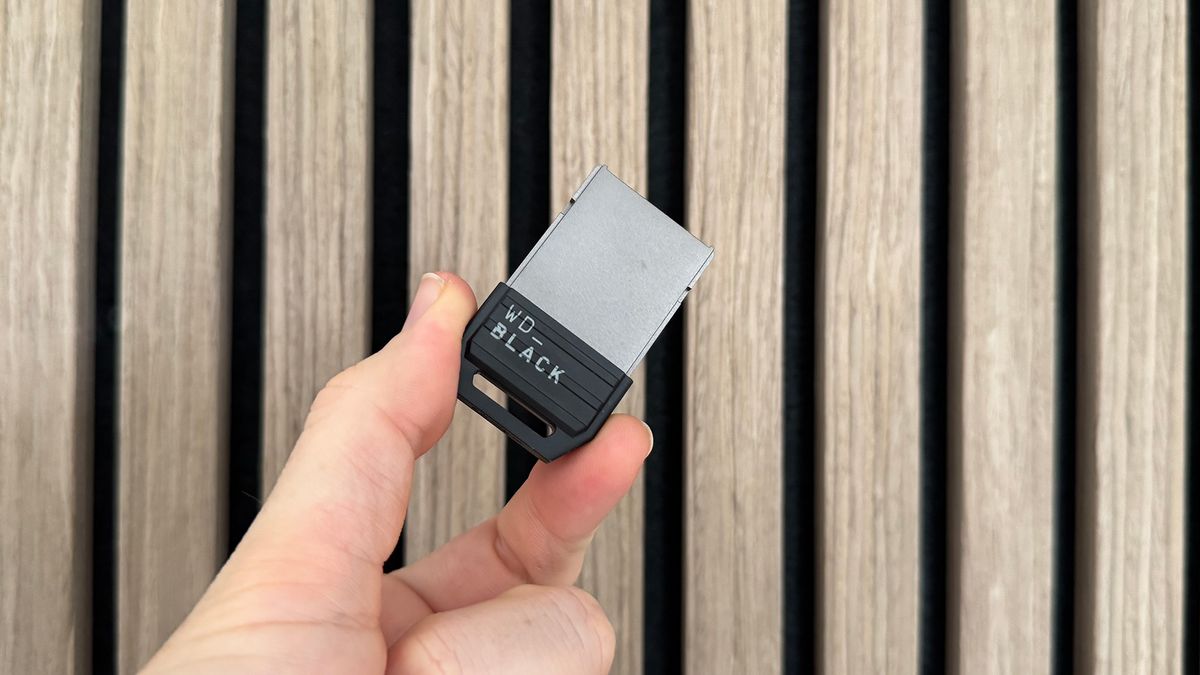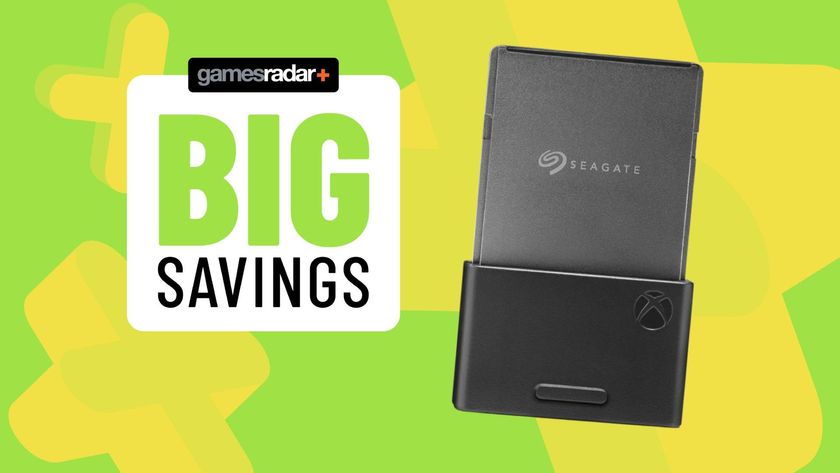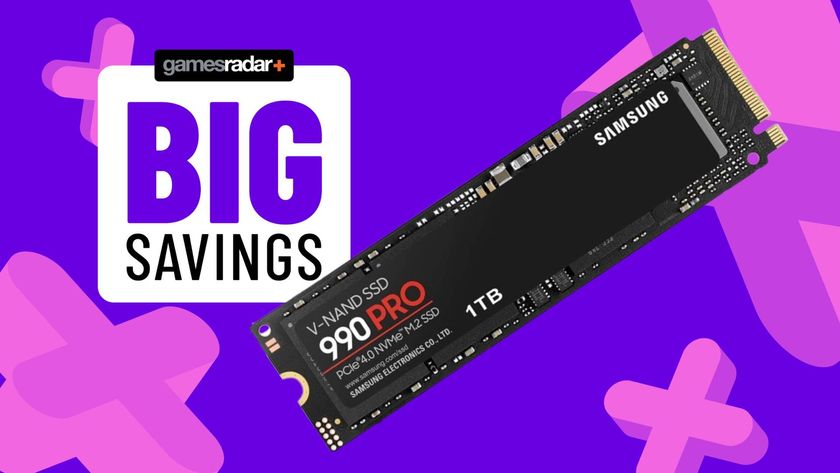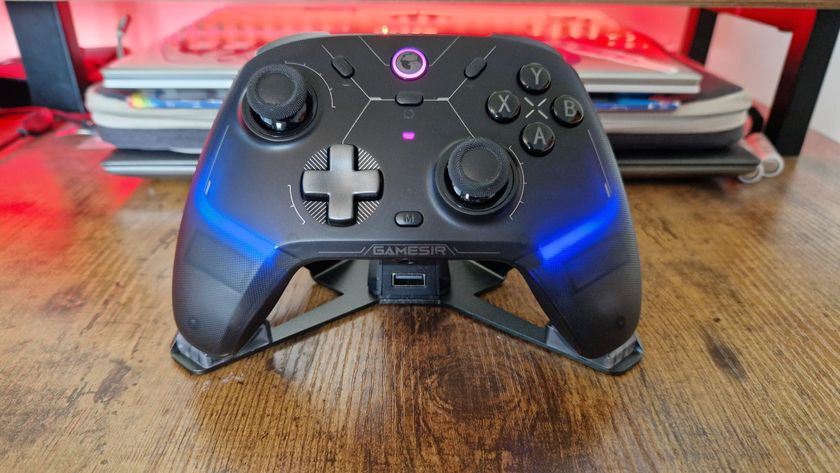GamesRadar+ Verdict
When expanding your storage on Xbox Series X/S, your options are more limited than on the PS5. That's why official expansion cards like the WD Black C50 are highly sought after. While this simple plug-and-play solution does exactly what you need it to, and feels fittingly reminiscent of memory cards from older console platforms, you do need to pay a bit of a premium for one.
Pros
- +
Simple plug-and-play
- +
Near identical performance to the internal drive
- +
Quick transfer times
- +
Plenty of storage space
Cons
- -
Pricey
- -
Some transfer quirks
- -
Some games still require internal storage space
Why you can trust GamesRadar+
Modern games seem to just keep getting bigger but sadly the base-level storage of the Xbox Series consoles always stays the same. That creates a dilemma for gamers; do you limit your installed library, juggle games between devices, or invest in an official Xbox expansion card?
The WD Black C50 is one of the only Xbox Series X hard drives that will allow you to continue using Quick Resume, and after enjoying a 1TB war with the Seagate Expansion Card, it’s now launched in a 2TB size as well. All told, there are three capacities to choose from; 512GB, 1TB, and 2TB and it’s the largest of the range that I’ve been playing with for this review.
The 2TB WD C50 offers simplicity and plenty of storage, but at $249.99/£213.99 it’s a serious investment so I’m sure a lot of gamers will be asking themselves the same thing. Is it worth paying the premium for an Xbox expansion card?
Design & Features
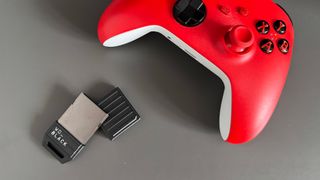
While not quite as minimalist as the Seagate equivalent, the Western Digital C50 certainly keeps things simple on the design front. Not that it matters though, for most gamers the first and last time you’ll likely ever see this little guy is when you take it out of the box and slot it into the back of your Xbox Series S or X.
While the card I’m checking out is 2TB, it’s an 8MB PS2 memory card that first came to mind because the C50 is doing a pretty great impression of one. Things have come full circle it seems, as the two share the same basic concept. The compact black body feels doubly familiar too as it carries the subtle channelled form of the rest of the WD_Black range. It’s a plastic case around what is almost certainly a smaller form factor NVMe M.2 SSD for gaming, but a quality chassis nonetheless and it feels impressively premium in your hand before disappearing into the TV unit never to be seen again.
From a pure vibes standpoint, I couldn’t tell the difference between games installed on my Xbox Series X’s internal drive and games installed on the WD C50 2TB.
Microsoft’s decision to go proprietary for the Xbox Series S/X storage was (and still is if we’re being honest) a little irritating. It makes increasing your capacity a closed garden with noticeably high walls, especially compared to the best SSDs for PS5, but it does come with some benefits and the first of those is simplicity. There’s no installation or setup to speak of here, the C50 is a true plug-and-play device. Like the old-school memory card it resembles all you need to do is plug it into the dedicated slot in your console and you’re away, there wasn’t even a need to format or mount it - very nice.
Performance
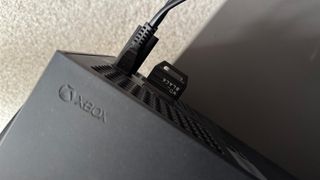
The other advantage of proprietary storage devices is having control over their performance. Not all SSDs are created equal, specs and performance levels of different drives will vary and the in-game experience can become a lottery as a result. It’s a level playing field with Xbox expansion cards though, the Superspeed NVMe Core inside the WD C50 is optimized for the Xbox Velocity Architecture, so you should see the same performance and speeds as the console’s internal storage. This isn’t just a case of improved loading times though, newer games optimized for the Xbox Series X will only launch from this level of drive so as games get bigger it’s less of a luxury and more of a necessity.
Before we throw some numbers on it, from a pure vibes standpoint I couldn’t tell the difference between games installed on my Xbox Series X’s internal drive and games installed on the WD C50 2TB. For day-to-day use, they might as well have been installed in the same place for all I could tell. The Xbox also does a good job of making installations as simple as possible and while you can set preferred drives, it’ll just stick it wherever it has the space to.
Transfers between internal storage and the 2TB WD C50 were reliable and impressively fast. At around 75GB each, both Avowed and Hogwarts Legacy needed just one minute and 40 seconds to completely transfer over to the expansive card. Speeds hovered around 6.2 Gbps (6,200MB/s) and peaked at 6.35, putting it just below the WD Black SN850X in terms of raw sequential speed. The 1.5GB of pixel-based agriculture that is Stardew Valley? That took a whole 3.2 seconds, I almost missed it with my stopwatch.
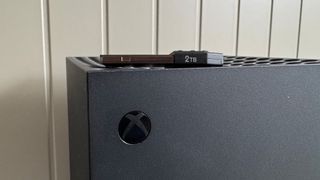
The return journey wasn’t as slick for those two larger titles though. Going from the C50 to my Series X’s internal storage was noticeably slower, nearly four minutes each. Here speeds fluctuated massively as the transfer progressed being sitting on “finishing up” for over a minute each, something that didn’t happen at all going the other direction. This isn’t the only quirk, despite having plenty of room on the C50, Call of Duty insisted on claiming a small amount of storage space on my internal drive too.
Loading times were imperceptibly similar when compared to the Series X internal drive. Continuing my game from the main menu of Avowed took 11.3 seconds on the C50 and 10.9 from the internal. Hogwarts Legacy was even closer, going from menu to castle in 8.4 seconds and 8.2 respectively, while Stardew clocked identical 5.5-second times.
Should you buy the WD Black C50?
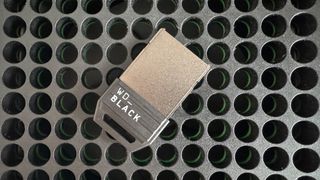
Whether it’s worth grabbing the WD C50 2TB expansion card is less about whether it’s any good and more about whether you need it and can stomach the cost of it. Short of some strange transfer behavior back to the internal drive which may point to some disappointing read speeds or a poor method of heat dissipation, it barely puts a foot wrong. It’s well made, it looks smart and it performs well.
It’s expensive though. $249.99/£213.99 sits this 2TB storage expansion at nearly half the cost of the Series X console, and dangerously close to the full cost of a Series S, which is a pretty eye-watering realization. That’s all the more startling now that different models of the Series S and X exist to give people more of a chance to choose their desired storage capacity. Fortunately, the 1TB option isn’t quite as pricey, and can frequently be found for cheaper than the Seagate Expansion Card.
If you like jumping between a bunch of AAA titles though and don’t have the time or interest in waiting for slower transfers to a pure storage drive, the WD Black C50 is the answer to your problems. If you’re still playing plenty of older titles or can deal with a wait to transfer them from a slower drive, consider grabbing one of the best external hard drives for gaming instead.
How we tested the WD Black C50
I plugged the 2TB WD C50 into my Xbox Series X and used it as any gamer would for a week or two before writing my thoughts up for this review. In addition to casual gaming, I also conducted a series of more formalized tests including measuring transfer and load times with a stopwatch. While these were by no means perfectly carried out and left room for some human error, they were more to give a general user an idea of how the C50 performs in its various use cases.
For more on how we test SSDs, take a look at our hardware policy.
Alex is a streamer who has been creating gaming content for over a decade, streaming on Twitch regularly across the last five years. With a degree in film and a background in sports media, you'll find him jumping between 60,000 seat stadiums and his Animal Crossing island (where he's growing pears, in case you were wondering).
You must confirm your public display name before commenting
Please logout and then login again, you will then be prompted to enter your display name.
